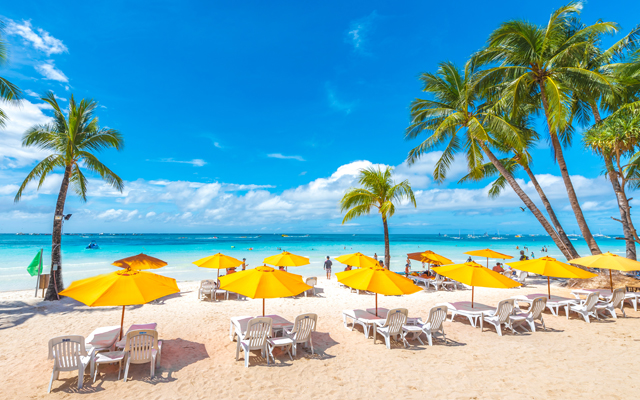The Philippines is brimming with optimism as travel restrictions to the country have finally been lifted, opening the door wide for international business events and bringing relief to the battered hospitality sector.
Concrete efforts in international promotions and destination management are being undertaken by the Filipino government to revive the business events sector in the Philippines.
Since the Philippines’ full reopening to vaccinated travellers in February, the Tourism Promotions Board (TPB) has focused its efforts on raising the country’s reputation as a premier business events destination, starting with its first-ever global MICE branding campaign. Currently in the works, the campaign will be unveiled sometime later this year.

Officials have also disclosed details on how TPB is planning to entice more domestic and international business events. On the cards is an enhanced MICE Plus Programme with cash subventions and better incentives. The TPB is also planning to increase its marketing expenditure, set up a MICE Ambassador Programme for local association executives to bid for international events, as well as update its MICE Roadmap 2020-2030.
TPB’s chief operating officer, Maria Anthonette Velasco-Allones, added that the government will continue to participate in international travel tradeshows, as well as collaborate with both the private sector and local government units to help the Philippines regain her competitiveness.
Velasco-Allones’ hopes are buoyed by several international and corporate events scheduled this year, such as the World Travel and Tourism Council 21st Global Summit happening from April 20-22 in Manila, and the Clipper Round The World Race which left Subic Bay in February.
To help the Philippines in her quest for business events recognition, tourism consultant Jerome de la Fuente opined that aside from South-east Asian markets, the country should also court Indian outbound groups. India is one of the fastest-growing source markets for the Philippines although there are currently no direct flights between the two countries.
“The Philippine NTO should follow the lead of other Asian countries and tap into India’s (potential), especially pharmaceutical companies…and conglomerates,” detailed de la Fuente.
Pointing to India’s business events potential, de la Fuente said that in early March 2022, the Indian Chamber of Commerce in the Philippines held a roadshow featuring India-based companies in Davao. This was its second roadshow, with the first held in 2020.
This shift in focus is needed because China – the Philippines’ second-largest inbound market pre-pandemic – still has a zero-Covid policy in place, where citizens are required to undergo lengthy quarantine upon their return.
Internally, most Philippine destinations are now considered business events ready, as airlines, convention centres, hotels and restaurants have utilised the business lull to revise their health and safety protocols to international standards, observed Bernadette de Leon, general manager of Manila-headquartered Amiable Intertours. Not a single business event held during the pandemic has resulted in the spread of Covid-19, proving that infections can be avoided in a controlled business event setting.
Another positive change, de Leon noted, is a stronger awareness among stakeholders of the importance of responsible tourism in sustaining their business and regaining travellers’ confidence.

And as more destinations in the Philippines come to realise the value of business events, more have invested in relevant development.
For example, Clark has been steadily growing in its business events appeal. Its international airport has been expanded, while road and transport infrastructure has been built up to better connect it with Manila and other parts of Central Luzon.
International hotel companies have taken notice, resulting in recent brand entries by Marriott and Swissotel. More brands are in the pipeline, such as Banyan Tree and Westin.
With its expanding cache of hotels, resorts and activities for corporate incentive programmes and meetings, Boracay is likewise angling for business events with the formation of its own Boracay MICE Alliance. Alliance president Elmar Lina shared that the Boracay Convention Center will also add an 800 pax event venue when it opens later this year.
Elsewhere, Iloilo is another destination that boasts its own MICE Alliance formed several years ago, while Bacolod will soon join Iloilo and Boracay to become a trio of business events destinations ready to attract business events to the Western Visayas.
Technology and digital transformation – such as hybrid events and contactless touchpoints – have also been fast-tracked in the sector.
Walid Wafik, senior vice president, SM Hotels and Convention Center (SMHCC), pointed out that these new practices will be around in the long run, and keeping up to date with innovations in hotels and convention centres will make the country a worthy competitor in South-east Asia.
When asked if constant innovation would raise the cost of conducting business events, Walid shared that SMHCC would not be raising rates, but would offer value deals and packages to clients instead.
“We need the industry to bounce back first. We will work towards 2019’s pre-pandemic volume, and the revenue will come later,” he told TTGmice.





















